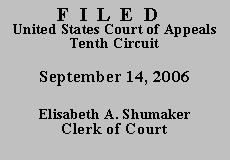

| UNITED STATES OF AMERICA, |
|
| v. | |
| ENRIQUE PEREZ-ELVIRA, |
Defendant-appellant Enrique Perez-Elvira pled guilty to one count of illegal reentry by a deported alien previously convicted of a felony, in violation of 8 U.S.C. § 1326(a)(1), (a)(2) and (b)(1). He was sentenced to eighteen months' imprisonment, followed by three years of supervised release. He has filed a timely appeal, challenging only his sentence.
Perez-Elvira's appointed counsel, Mario Carreon, has filed an Anders brief and moved to withdraw as counsel. See Anders v. California, 386 U.S. 738 (1967). Perez-Elvira has not filed a response, and the government has declined to file a brief. We therefore base our conclusion on counsel's brief and our own review of the record. For the reasons set forth below, we agree with Mr. Carreon that the record in this case provides no nonfrivolous basis for an appeal, and we therefore grant his motion to withdraw and dismiss this appeal.
BACKGROUND
The record does not reveal the facts giving rise to the instant conviction. However, Perez-Elvira does not challenge his conviction. Rather, as indicated, he challenges only his eighteen-month sentence.
For the purpose of calculating an appropriate sentence under the United States Sentencing Commission, Guidelines Manual ("USSG"), the United States Probation Office prepared a presentence report ("PSR"). The PSR determined that Perez-Elvira's base offense level was eight. That base offense level was then adjusted upward four levels because Perez-Elvira had a prior felony conviction, and then downward two levels for acceptance of responsibility, resulting in an adjusted offense level of ten.
In calculating his criminal history score, the PSR added two criminal history points for a prior misdemeanor conviction for driving while under the influence and driving without a license; one criminal history point for another prior misdemeanor conviction for driving on a suspended license; two criminal history points for another prior conviction; one criminal history point for a prior felony conviction for possession of burglary tools, providing false identification to a peace officer and receiving stolen property; one criminal history point for a prior felony conviction for possession of a controlled substance; two criminal history points for a prior felony conviction for unlawful taking of a vehicle; two criminal history points for committing the instant offense while under a criminal justice sentence for the unlawful taking of a vehicle conviction; and one criminal history point for committing the instant offense within two years of being released from custody on the unlawful taking of a vehicle conviction. Accordingly, with twelve criminal history points, Perez-Elvira was placed in criminal history category V which, with an offense level of ten, yielded a recommended Guideline sentencing range of twenty-one to twenty-seven months.
At his sentencing hearing, Perez-Elvira argued, pursuant to USSG §4A1.3(b)(1), that criminal history category V seriously over represented the seriousness of his criminal history. The government agreed and the district court reduced his criminal history category to IV. This yielded a Guideline sentencing range of fifteen to twenty-one months. The court then sentenced Perez-Elvira to eighteen months.
DISCUSSION
Under Anders, "counsel [may] request permission to withdraw [from an appeal] where counsel conscientiously examines a case and determines that any appeal would be wholly frivolous." United States v. Calderon, 428 F.3d 928, 930 (10th Cir. 2005) (citing Anders, 386 U.S. at 744). This process requires counsel to
submit a brief to the client and the appellate court indicating any potential appealable issues based on the record. The client may then choose to submit arguments to the court. The [c]ourt must then conduct a full examination of the record to determine whether defendant's claims are wholly frivolous. If the court concludes after such an examination that the appeal is frivolous, it may grant counsel's motion to withdraw and may dismiss the appeal.
Id. (citing Anders, 386 U.S. at 744). As indicated, Perez-Elvira's counsel has filed his Anders brief, to which neither Perez-Elvira nor the government has responded.
We agree with counsel that there is no nonfrivolous issue related to the district court's application of the Guidelines.(1) The district court stated that it had considered the sentencing factors contained in 18 U.S.C. § 3553(a). While the district court did not specifically address whether there was a basis for disregarding the advisory Guidelines and exercising its discretion to sentence outside of the advisory Guideline range, it is hard to imagine why the court would do so, given Perez-Elvira's considerable criminal history. While we encourage district courts to explicitly refer to the sentencing factors set forth in 18 U.S.C. § 3553(a), "[w]e will 'not demand that the district court recite any magic words to show us that it fulfilled its responsibility.'" United States v. Mares, 441 F.3d 1152, 1161 (10th Cir. 2006) (quoting United States v. Contreras-Martinez, 409 F.3d 1236, 1242 (10th Cir. 2005) (further quotation omitted)). We conclude from our review of the record that there is no indication that the district court failed to consider the appropriate factors, or that the presumption of reasonableness arising from the imposition of a sentence within the Guideline range, see United States v. Kristl, 437 F.3d 1050, 1054 (10th Cir. 2006) (per curiam), could be overcome based on the facts of this case.
CONCLUSION
For the foregoing reasons, counsel's motion to withdraw is GRANTED and this appeal is DISMISSED.
ENTERED FOR THE COURT
Stephen H. Anderson
Circuit Judge
*.This order and judgment is not binding precedent, except under the doctrines of law of the case, res judicata, and collateral estoppel. The court generally disfavors the citation of orders and judgments; nevertheless, an order and judgment may be cited under the terms and conditions of 10th Cir. R. 36.3.
1.Counsel argues we lack jurisdiction to hear an appeal from a sentence imposed with the Guideline range. While counsel is mistaken in that view, he is correct in his acknowledgment that there are no viable grounds for appealing the sentence imposed.